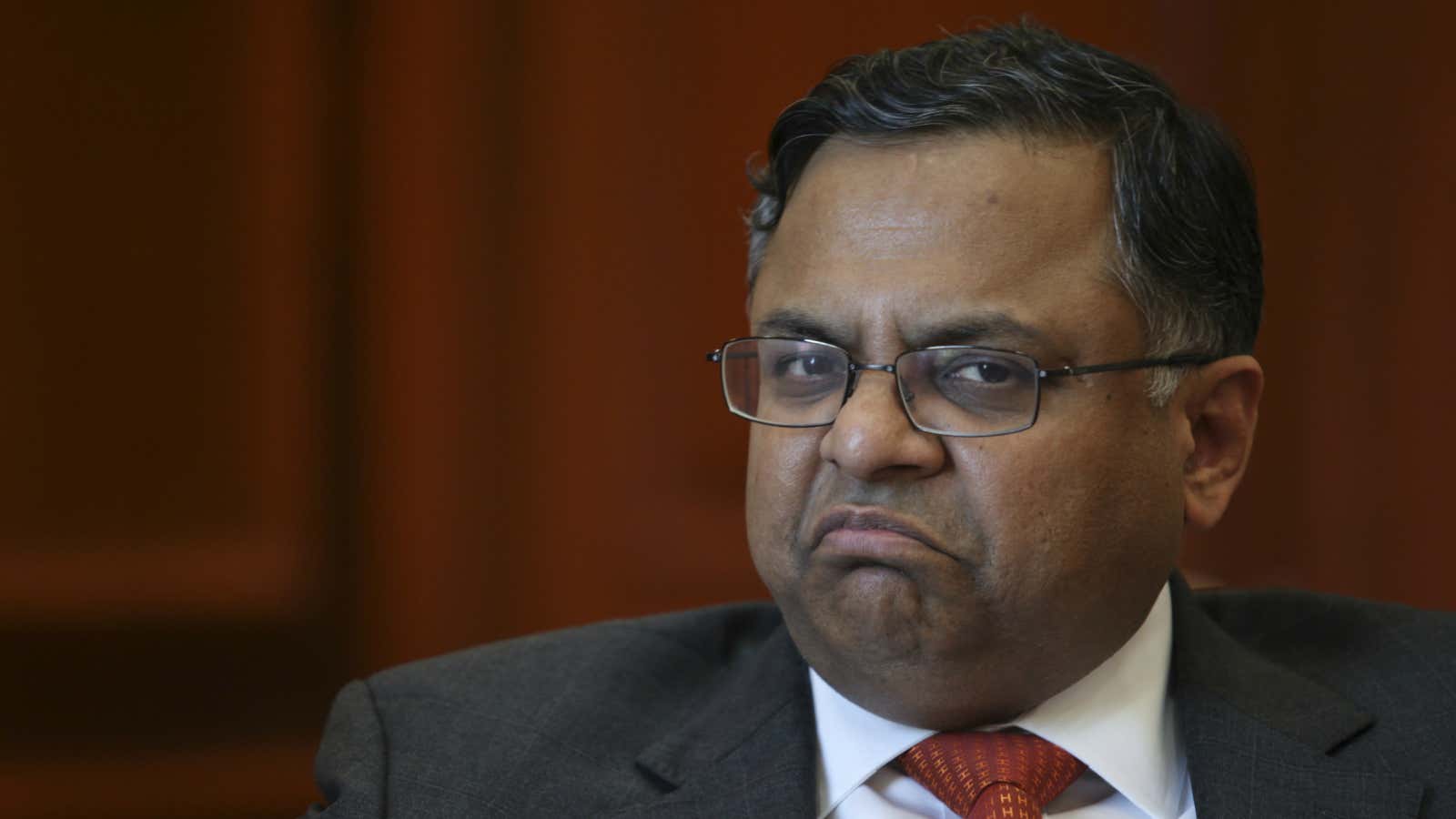After more than two months of a public boardroom drama that will be remembered as one of the ugliest in India’s corporate history, the Tata Group has named its new chairman.
The $103 billion conglomerate on Jan.12 chose N Chandrasekaran to head Tata Sons, the group’s holding company. Chandrasekaran, 53, is currently the managing director and CEO of India’s largest software firm, Tata Consultancy Services (TCS).
“Mr. Chandrasekaran has demonstrated exemplary leadership as the chief executive officer and managing director of Tata Consultancy Services. We believe he will now inspire the entire Tata group to realise its potential acting [sic] as leaders in their respective businesses, always in keeping with our value system and ethics and adhering with the practices of the Tata group which have stood it in good stead,” Tata Sons said in a statement.
In an unexpected move on Oct. 24, Tata Sons sacked Cyrus Mistry as chairman, rattling investors and the business community alike. A very public spat ensued in the following weeks between Mistry, whose family firm Shapoorji Pallonji owns 18.5% of Tata Sons, and Ratan Tata, who was then the group’s chairman emeritus. Messy details of each side’s misdoings were revealed or leaked to the public at regular intervals. While Tata Sons said that Mistry’s ouster was a result of his poor performance, the ousted chairman has now filed a case against the group with the National Company Law Tribunal alleging misconduct in the group operations and oppression of minority shareholders.
Following Mistry’s ouster, Tata returned as chairman but it was made clear that he would helm the group only till a new candidate was found. Chandrasekaran has been on the list of probables ever since. Other candidates reportedly included Pepsico’s Indra Nooyi, former Vodafone CEO Arun Sarin, and Noel Tata, managing director of Tata International. Chandrasekaran’s appointment, thus, is expected to end the months-long turmoil at the group.
After Mistry, Chandrasekaran is now the second group chairman from outside the Tata family. He joined TCS in 1987 after completing a master’s degree in computer applications from Regional Engineering College, Trichy, Tamil Nadu. He has led the firm since 2009.
Under Chandrasekaran, better known as Chandra, TCS has continued to post strong growth and widen the gap with competitors, even as big players in the IT sector have been struggling to stay relevant amid changing client demands. At the time when he was chosen to head TCS in 2009, the company’s revenue stood at just Rs27,812 crore (pdf). In fiscal 2016, TCS posted (pdf) a consolidated revenue of Rs108,646 crore—almost five times the 2009 figure. In comparison, TCS’s closest rival, Infosys, reported consolidated revenue of Rs62,441 in fiscal 2016.
TCS is India’s largest private sector employer, with a staff exceeding 370,000.
Chandrasekaran is also one of the highest-paid CEOs in the country. An active long-distance runner, he regularly participates in marathons across India and abroad.
As Tata Sons chairman, Chandrasekaran has his task cut out: fix group firms like Tata Steel, which have displayed lacklustre performance, and sort out the domestic business of Tata Motors, which is heavily reliant on revenues from its foreign subsidiary, Jaguar Land Rover.
He will also have to restore the storied Tata Group’s now tarnished reputation and public standing. It won’t be easy.
Itika Sharma Punit contributed to this story.
